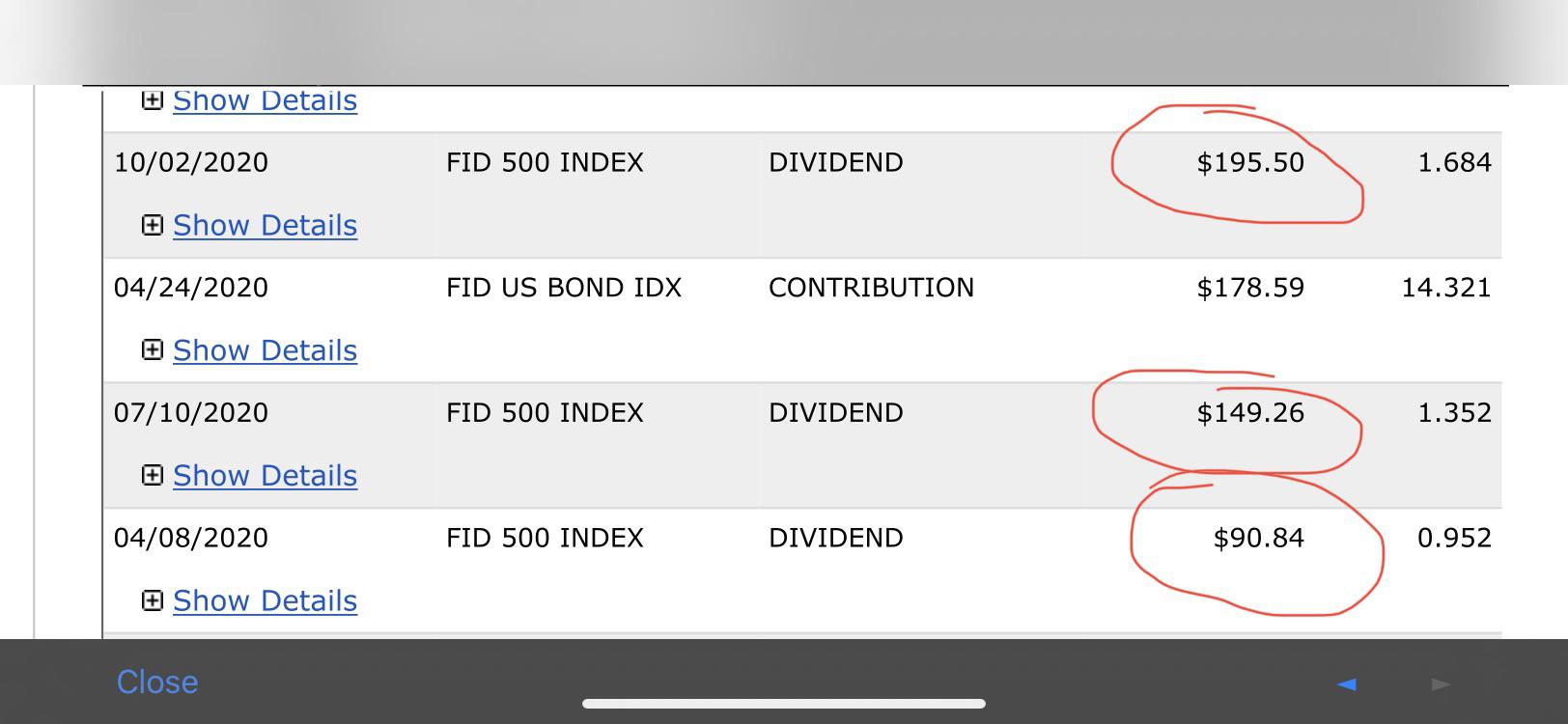

Finance
What Stocks Pay Dividends Weekly
Published: January 19, 2024
Looking for weekly dividend-paying stocks? Explore our comprehensive finance guide to find the best investment options for steady income.
(Many of the links in this article redirect to a specific reviewed product. Your purchase of these products through affiliate links helps to generate commission for LiveWell, at no extra cost. Learn more)
Table of Contents
- Introduction
- Understanding Dividends
- Benefits of Weekly Dividend Stocks
- Risks of Weekly Dividend Stocks
- Factors to Consider when Investing in Weekly Dividend Stocks
- Top Weekly Dividend Stocks in the Market
- Strategies for Investing in Weekly Dividend Stocks
- Tips for Maximizing Returns from Weekly Dividend Stocks
- Conclusion
Introduction
Investing in stocks is a popular way to grow wealth and generate passive income. While most stocks pay dividends on a quarterly or annual basis, there are also stocks that pay dividends weekly. These stocks offer investors the opportunity to receive a regular income stream, providing a consistent source of cash flow.
Dividend payments can be a valuable source of income for investors, especially those who are looking for regular payouts. By investing in stocks that pay dividends weekly, investors can benefit from more frequent cash flow, which can be particularly useful for those who rely on their investments for living expenses or want to reinvest the dividends to grow their portfolio even faster.
In addition to the regular income stream, weekly dividend stocks offer additional advantages to investors. First, they provide a sense of stability and reliability. Companies that consistently pay dividends weekly tend to be well-established and financially stable.
Second, weekly dividend stocks provide an opportunity for compounding returns. By reinvesting the dividends back into the stock, investors can take advantage of the power of compounding, allowing their investment to grow exponentially over time.
It is important to note that investing in weekly dividend stocks also comes with its own set of risks. The stock market can be volatile, and dividend payments are not guaranteed. Companies can reduce or eliminate their dividend payments if they face financial difficulties or if the board of directors decides to allocate the funds elsewhere. Therefore, it is crucial for investors to conduct thorough research and diversify their portfolio to mitigate potential risks.
In this article, we will explore the benefits and risks of investing in weekly dividend stocks, discuss the factors to consider before investing, highlight some top weekly dividend stocks in the market, and provide strategies and tips for maximizing returns. Whether you are a seasoned investor or new to the stock market, this guide will equip you with the knowledge and insights needed to make informed decisions when investing in weekly dividend stocks.
Understanding Dividends
Before diving into the world of weekly dividend stocks, it is important to have a clear understanding of what dividends are and how they work.
Dividends are a portion of a company’s profits that are distributed to its shareholders as a way to reward them for their investment. When a company generates earnings, it has a few options on how to use those earnings. It can reinvest the profits back into the business for growth, pay down debt, repurchase shares of its own stock, or distribute them to shareholders in the form of dividends.
Dividends are typically paid out in cash or additional shares of stock. The amount and frequency of dividend payments are determined by the company’s board of directors and can vary from company to company. While most companies pay dividends on a quarterly or annual basis, some companies have begun offering weekly dividend payments as a way to attract investors.
Dividend yields are expressed as a percentage and are calculated by dividing the annual dividend payment by the stock price. For example, if a stock is trading at $100 and pays an annual dividend of $4 per share, the dividend yield would be 4%.
Dividend payments can provide investors with a steady income stream, which can be particularly attractive for those looking for passive income or seeking to supplement their regular earnings. It is important to note, however, that not all stocks pay dividends, and not all companies are obligated to do so. Dividends are typically more common among mature companies in stable industries, as they tend to generate steady profits and have a history of consistent dividend payments.
Another important concept to understand is the ex-dividend date. The ex-dividend date is the first day that a stock trades without the dividend. Investors who purchase the stock before the ex-dividend date are entitled to receive the upcoming dividend payment, while those who buy the stock on or after the ex-dividend date will not receive the dividend for that period.
It is also worth noting that dividends are subject to taxes. The tax treatment of dividends can vary depending on factors such as your country of residence and the type of account in which you hold your investments. It is recommended to consult with a tax advisor to understand the tax implications of receiving dividend income.
In summary, dividends are a way for companies to distribute a portion of their profits to shareholders. They can provide investors with a regular income stream and can be a valuable component of an investment portfolio. Understanding how dividends work and their potential tax implications is important in making informed investment decisions.
Benefits of Weekly Dividend Stocks
Investing in weekly dividend stocks can offer several advantages for investors. These benefits make them an appealing option for those seeking a consistent income stream and potential growth. Here are some of the key advantages of investing in weekly dividend stocks:
- Regular Income: The most obvious benefit of weekly dividend stocks is the regular cash flow they provide. Unlike stocks that pay dividends on a quarterly or annual basis, weekly dividend stocks offer investors the opportunity to receive a payment every week. This consistent income stream can be especially beneficial for those who rely on their investments for regular expenses or want to supplement their income.
- Income Stability: Companies that pay dividends on a weekly basis are often established and financially sound. They tend to have consistent cash flows and a long track record of profitability and dividend payments. This stability can provide investors with a sense of security, knowing that they are investing in companies that have a history of rewarding their shareholders.
- Opportunity for Compounding Returns: Reinvesting dividends is a powerful wealth-building strategy. By opting to reinvest the dividends received from weekly dividend stocks, investors can take advantage of compounding returns. Compounding allows the investment to grow exponentially over time as both the initial investment and the reinvested dividends generate their own returns. This can significantly enhance the overall profitability of the investment.
- Diversification: Investing in a portfolio of weekly dividend stocks can help diversify an investment portfolio. Diversification is the practice of spreading investments across different asset classes, sectors, and geographic regions to reduce risk. By including weekly dividend stocks in a diversified portfolio, investors can potentially enhance returns while mitigating risk.
- Flexibility and Liquidity: Weekly dividend stocks offer investors liquidity and flexibility. The ability to receive regular cash flow from dividends allows investors to have more control over their income and the option to reinvest or allocate the funds as needed. Additionally, the liquidity of weekly dividend stocks makes it easier for investors to buy or sell shares, providing greater flexibility and the ability to respond to market conditions.
It is important to note that the benefits of investing in weekly dividend stocks may vary depending on individual investment goals, risk tolerance, and market conditions. Investors should conduct thorough research and consider their unique financial circumstances before making investment decisions.
Risks of Weekly Dividend Stocks
While weekly dividend stocks offer several benefits, it is important for investors to be aware of the potential risks involved. Understanding these risks can help investors make informed decisions and manage their portfolio effectively. Here are some of the key risks associated with investing in weekly dividend stocks:
- Market Volatility: The stock market is inherently volatile, and stock prices can fluctuate significantly in response to economic factors, company performance, and market sentiment. Weekly dividend stocks are not immune to market volatility, and the value of these stocks can decrease, affecting both the capital appreciation potential and the stability of dividend payments.
- Dividend Cuts or Suspension: While weekly dividend stocks may provide a regular income stream, it is important to remember that dividend payments are not guaranteed. Companies can reduce, suspend, or even eliminate their dividend payments if they face financial difficulties or if the board of directors decides to allocate the funds elsewhere. Investors should carefully research the financial health and dividend history of a company before investing in its stock.
- Interest Rate Risks: Interest rates play a significant role in the performance of dividend-paying stocks. When interest rates rise, income-focused investors may turn to fixed-income securities as an alternative to dividend stocks, potentially leading to a decrease in demand for dividend stocks and a subsequent decline in share prices.
- Industry and Sector Risks: Weekly dividend stocks are not immune to industry-specific or sector-specific risks. Industries and sectors can face challenges such as regulatory changes, technological disruption, or shifts in consumer preferences. It is important to consider the specific risks associated with the industry or sector in which a company operates before investing in its stock.
- Liquidity Risks: While weekly dividend stocks offer liquidity and flexibility, there can still be risks associated with liquidity. In times of market turmoil or during periods of low trading volume, the ability to buy or sell weekly dividend stocks at desired prices may be limited. This can impact an investor’s ability to adjust their portfolio or access cash when needed.
Investing in weekly dividend stocks requires careful consideration and risk management. Diversification, thorough research, and monitoring of economic and industry trends can help mitigate these risks. It is also advisable to consult with a financial advisor who can provide personalized guidance based on individual investment goals and risk tolerance.
Factors to Consider when Investing in Weekly Dividend Stocks
Before investing in weekly dividend stocks, it is important to consider several factors to make informed investment decisions. These factors will help determine the suitability of a specific stock and align it with individual investment goals and risk tolerance. Here are some key factors to consider when investing in weekly dividend stocks:
- Dividend Yield: The dividend yield is an important metric to evaluate the attractiveness of a dividend stock. It is calculated by dividing the annual dividend by the stock price. A higher dividend yield indicates a higher return on investment. However, a high yield might also indicate an increased level of risk. It is important to strike a balance between a competitive yield and the stability and growth potential of the underlying company.
- Dividend Payment History: Analyzing the historical track record of dividend payments is crucial. Look for companies that have a consistent history of paying dividends and increasing them over time. A company with a solid dividend payment history demonstrates financial stability and a commitment to rewarding shareholders.
- Company Financials: Assess the financial health of the company before investing. Review factors such as revenue growth, profitability, debt levels, and cash flow. A financially stable company is more likely to sustain its dividend payments even during challenging economic conditions.
- Industry and Market Conditions: Consider the industry and market conditions in which the company operates. Certain industries may be more susceptible to economic downturns or regulatory changes, which can impact the stability of dividend payments. Analyzing industry trends and the competitive landscape can provide insights into the company’s long-term prospects.
- Management Team: Evaluate the management team’s track record and their ability to generate shareholder value. Look for companies with competent and experienced leaders who have a strategic vision and a history of making sound business decisions.
- Valuation and Price: Consider the valuation of the stock and its price relative to its intrinsic value. A stock that is trading at a significant premium may not offer an attractive investment opportunity. Conducting fundamental analysis and comparing the stock’s valuation to its peers can provide insights into whether the stock is overvalued or undervalued.
- Risk Tolerance: Assess your individual risk tolerance and investment goals. Weekly dividend stocks, like any investment, come with risks. Consider how much risk you are willing to bear and ensure that the investment aligns with your overall investment strategy.
By carefully considering these factors, investors can enhance their chances of selecting suitable weekly dividend stocks that align with their investment objectives and risk profile. Conducting thorough research and seeking guidance from financial professionals can further assist in making informed investment decisions.
Top Weekly Dividend Stocks in the Market
While it is important to conduct thorough research and consider individual investment goals, here are some examples of top weekly dividend stocks in the market:
- AT&T Inc. (T): AT&T is a telecommunications giant that offers a competitive dividend yield and has a long history of paying dividends. It operates in a stable industry and provides essential services to millions of customers. AT&T’s consistent dividend payments and solid financials make it an attractive option for income-focused investors.
- AbbVie Inc. (ABBV): AbbVie is a pharmaceutical company known for its leading drug Humira. With a strong dividend history and a focus on research and development, AbbVie has consistently delivered value to its shareholders. The company operates in the healthcare sector, which tends to provide stability and growth potential.
- Starbucks Corporation (SBUX): Starbucks is a global coffee chain that continues to experience strong growth. With a solid dividend track record and an expanding international presence, Starbucks offers investors the opportunity to benefit from both capital appreciation and consistent dividend payments.
- Procter & Gamble Company (PG): Procter & Gamble is a multinational consumer goods company known for its diverse range of products. It has a solid history of dividend payments and operates in a stable industry. Procter & Gamble’s strong brand portfolio and global presence position it well for long-term growth and reliable dividend payments.
- Coca-Cola Company (KO): Coca-Cola is a leading beverage company with a globally recognized brand. It has a strong dividend history and a wide distribution network. Coca-Cola operates in a resilient industry, and its brand strength and market share make it a popular choice among dividend investors.
These are just a few examples of top weekly dividend stocks, and it is important to note that market conditions and individual circumstances can impact the suitability of these stocks for an investor’s portfolio. Conducting thorough research, analyzing financial metrics, and considering individual investment goals are crucial steps in identifying the best stocks for your portfolio.
It is always recommended to seek the advice of a financial advisor or investment professional who can provide personalized guidance based on your specific investment needs and risk tolerance.
Strategies for Investing in Weekly Dividend Stocks
Investing in weekly dividend stocks requires careful consideration and a well-defined strategy. Here are some key strategies to consider when investing in weekly dividend stocks:
- Research and Due Diligence: Thoroughly research and analyze potential weekly dividend stocks before making investment decisions. Consider factors such as the company’s financial health, dividend history, industry trends, and management team. Conducting due diligence will help identify stocks with the potential for long-term growth and consistent dividend payments.
- Diversification: Diversify your portfolio by investing in a variety of weekly dividend stocks across different sectors and industries. Diversification helps mitigate risk by spreading investments across various asset classes, reducing exposure to any single stock or sector. This strategy can help protect your portfolio during market downturns and provide more consistent income streams.
- Focus on Dividend Growth: Look for stocks that not only pay a regular dividend but also have a history of increasing their dividend payments over time. Dividend growth stocks can potentially provide higher income streams and capital appreciation. Companies that consistently raise their dividends demonstrate their ability to generate strong cash flows and reward shareholders.
- Reinvest Dividends: Consider reinvesting your dividend payments back into the stock or portfolio. Reinvesting dividends allows you to take advantage of the power of compounding, where your investment generates additional returns over time. Reinvesting dividends can significantly enhance long-term returns and accelerate the growth of your investment portfolio.
- Monitor Market and Economic Conditions: Stay informed about market trends, economic indicators, and industry news that can impact the performance of your weekly dividend stocks. Continuously monitor the companies you have invested in and reassess their financial health and dividend sustainability regularly. This proactive approach allows you to make timely adjustments to your portfolio, if necessary.
- Consider Tax Implications: Understand the tax implications of investing in weekly dividend stocks. Dividends are generally subject to taxes, with the tax rate depending on various factors such as your country of residence and the type of account in which you hold your investments. Consult with a tax advisor to optimize your tax strategy and minimize your tax liabilities.
Remember that investing in weekly dividend stocks should align with your investment goals, risk tolerance, and time horizon. It is always prudent to consult with a financial advisor or investment professional who can provide tailored advice and help you develop a personalized strategy based on your unique circumstances.
Tips for Maximizing Returns from Weekly Dividend Stocks
Investing in weekly dividend stocks can be a smart strategy for generating a regular income stream and potential growth. Here are some tips to maximize returns from your investments in weekly dividend stocks:
- Focus on Quality Stocks: Invest in companies with a history of stability, profitability, and consistent dividend payments. Look for companies with strong fundamentals, solid cash flow, and a competitive advantage in their industry. Quality stocks have a higher likelihood of sustaining and increasing dividend payments over time.
- Reinvest Dividends: Consider reinvesting your dividend payments back into the same stock or other dividend-paying stocks. By reinvesting dividends, you can take advantage of compounding returns and potentially accelerate the growth of your portfolio. Many brokerage platforms offer dividend reinvestment plans (DRIPs), making it easier to reinvest dividends automatically.
- Dividend Aristocrats: Consider investing in companies included in the Dividend Aristocrats index. These are companies that have consistently increased their dividends for at least 25 consecutive years. Dividend Aristocrats are often regarded as reliable dividend-paying stocks with a commitment to rewarding shareholders.
- Long-Term Perspective: Approach investing in weekly dividend stocks with a long-term perspective. Dividends can provide a stable income stream, but they are only one aspect of an investment’s total return. By focusing on the long-term growth potential of your dividend stocks, you can benefit from both capital appreciation and increasing dividend payments.
- Monitor Dividend Metrics: Keep an eye on key dividend metrics such as dividend yield, payout ratio, and dividend growth rate. A reasonable dividend yield, a sustainable payout ratio, and a healthy dividend growth rate can indicate a company’s ability to generate consistent dividends and potential for future increases.
- Regular Portfolio Review: Regularly review your investment portfolio to ensure that your weekly dividend stocks still align with your investment goals and risk tolerance. Assess the performance of your holdings, monitor any changes in company fundamentals, and make adjustments as needed. Regular portfolio reviews help optimize your holdings and ensure they remain in line with your investment strategy.
- Consider International Opportunities: Look beyond your domestic market and consider international weekly dividend stocks. Investing in international dividend-paying companies can provide diversification benefits and exposure to different economies and industries. However, be mindful of currency risk and the potential impact of geopolitical factors on international investments.
- Manage Risk: Mitigate risk by diversifying your portfolio across various sectors, industries, and geographic regions. This helps reduce your exposure to any single stock or sector. Additionally, stay informed about market trends, economic indicators, and any changes in company fundamentals to make informed decisions and manage risk effectively.
Remember, while these tips can help maximize returns from your weekly dividend stocks, it is important to consider your personal financial situation, risk tolerance, and investment goals. Consulting with a financial advisor or investment professional can provide valuable guidance tailored to your specific needs.
Conclusion
Investing in weekly dividend stocks can offer investors a consistent income stream and potential growth. By understanding the concept of dividends, weighing the benefits and risks, and considering various factors, investors can make informed decisions when selecting and managing their weekly dividend stock portfolio.
Weekly dividend stocks provide a regular income stream, offering the opportunity to receive dividend payments on a more frequent basis. This can be particularly beneficial for those who rely on their investments for income or wish to reinvest their dividends for compounded growth.
While there are risks associated with investing in weekly dividend stocks, such as market volatility and potential dividend cuts or suspensions, these risks can be managed through research, diversification, and vigilance in monitoring market and company conditions.
When investing in weekly dividend stocks, factors such as dividend yield, dividend payment history, company financials, industry and market conditions, and management team track record should be carefully evaluated. These considerations can help identify stocks with the potential for long-term growth and sustainable dividend payments.
To maximize returns from weekly dividend stocks, investors should focus on quality stocks, consider reinvesting dividends, maintain a long-term perspective, monitor dividend metrics, regularly review their portfolio, consider international opportunities, and manage risk effectively. These strategies can help optimize the performance of the investment portfolio and enhance returns over time.
In conclusion, weekly dividend stocks can be an attractive option for investors seeking a regular income stream and the potential for growth. By carefully considering the factors discussed in this article and implementing effective investment strategies, investors can position themselves for success in the world of weekly dividend stocks.














